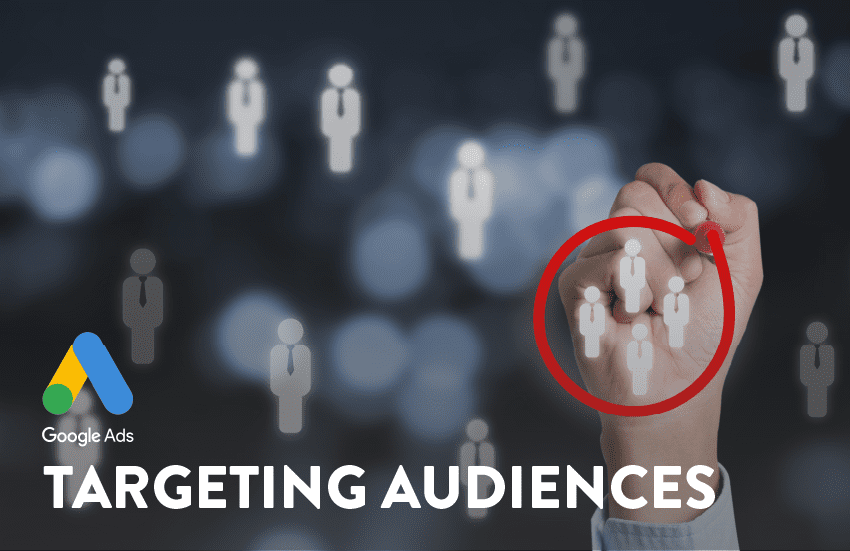Google Ads is a powerful tool that allows businesses to reach potential customers through highly targeted advertising. Whether you’re aiming to attract clients from a broad audience or focusing on a specific industry or niche, Google Ads offers various features and strategies to ensure your ads reach the right people. This blog will explore how you can effectively use Google Ads to target specific industries or niches, maximizing your return on investment (ROI) and driving more relevant traffic to your website.
1. Understand Your Target Industry or Niche
Before you can effectively use Google Ads to target a specific industry or niche, you need to have a deep understanding of your target market. Research the characteristics, needs, and behaviors of your ideal customers within that industry. Identify the challenges they face and how your products or services can provide solutions. This understanding will inform your keyword selection, ad copy, and overall campaign strategy.
2. Utilize Industry-Specific Keywords
Keywords are the foundation of any successful Google Ads campaign. When targeting a specific industry or niche, it’s crucial to use industry-specific keywords that potential customers are likely to search for. Use Google’s Keyword Planner to discover relevant keywords with good search volume and low competition. For example, if you’re targeting the healthcare industry, keywords like “medical software,” “healthcare consulting,” or “dental equipment” might be relevant.
3. Create Tailored Ad Copy
Your ad copy should speak directly to the needs and interests of your target industry or niche. Highlight the unique benefits and solutions your products or services offer to that specific audience. Use language and terminology that resonate with industry professionals. For instance, if you’re targeting the finance industry, your ad copy might emphasize features like “secure financial management,” “compliance with financial regulations,” or “cost-effective accounting solutions.”
4. Leverage Audience Targeting Options
Google Ads provides several audience targeting options that can help you reach specific industries or niches more effectively. These include:
- In-Market Audiences: Target users who are actively researching or comparing products and services similar to yours. Google Ads categorizes users based on their recent search activity and behavior.
- Custom Intent Audiences: Create your own audience segments based on keywords and URLs related to your industry. This allows you to target users who have shown an interest in topics relevant to your niche.
- Affinity Audiences: Target users based on their interests, habits, and lifestyle. This is useful if your niche aligns with specific hobbies or activities.
5. Use Geographic Targeting
If your business serves a specific geographic area, use Google Ads’ geographic targeting features to narrow down your audience. You can target ads by country, region, city, or even a specific radius around your business location. This is particularly useful for industries that rely on local customers, such as healthcare providers, legal services, or retail businesses.
6. Implement Remarketing Strategies
Remarketing allows you to reconnect with users who have previously visited your website but didn’t convert. By showing tailored ads to these users as they browse other sites on the Google Display Network, you can encourage them to return and complete a purchase or inquiry. For niche industries, remarketing can be particularly effective in staying top-of-mind with potential customers who are still in the decision-making process.
7. Utilize Ad Extensions
Ad extensions enhance your Google Ads by providing additional information and making your ads more appealing. Use extensions like sitelinks, callouts, and structured snippets to highlight key features and benefits relevant to your target industry. For example, a sitelink extension could direct users to specific product categories or service pages, while a callout extension might highlight free consultations or industry certifications.
8. Monitor and Adjusting Your Campaigns
Continuous monitoring and optimization are crucial for the success of your Google Ads campaigns. Regularly review performance metrics such as click-through rates (CTR), conversion rates, and cost per acquisition (CPA) to identify what’s working and what isn’t. Adjust your keyword bids, ad copy, and targeting settings based on this data to improve your campaign’s effectiveness. A/B testing different elements of your ads can also provide valuable insights into what resonates best with your target audience.
9. Analyze Competitor Strategies
Understanding how your competitors are using Google Ads can provide valuable insights and help you refine your own strategy. Use tools like SEMrush or Ahrefs to analyze your competitors’ keywords, ad copy, and landing pages. Identify gaps in their strategies and find opportunities to differentiate your ads and capture more market share within your niche.
10. Measure Success and ROI
Ultimately, the success of your Google Ads campaigns should be measured by how well they achieve your business goals. Set clear objectives, such as increasing website traffic, generating leads, or boosting sales, and use Google Ads’ reporting tools to track your progress. Calculating your ROI involves comparing the revenue generated from your ads to the total cost of your campaigns. Regularly assessing your performance helps ensure you’re getting the most out of your advertising budget.
Conclusion
Using Google Ads to target specific industries or niches requires a strategic approach and a deep understanding of your target market. By utilizing industry-specific keywords, creating tailored ad copy, leveraging audience targeting options, and continuously monitoring and adjusting your campaigns, you can effectively reach and engage your desired audience.
To dive deeper into Google Ads, read our other Google Ads blog articles. Or if you’re interested in partnering with STORY to optimize your current Google Ads or create a new campaign for you, read more about our Google Ads agency services.
